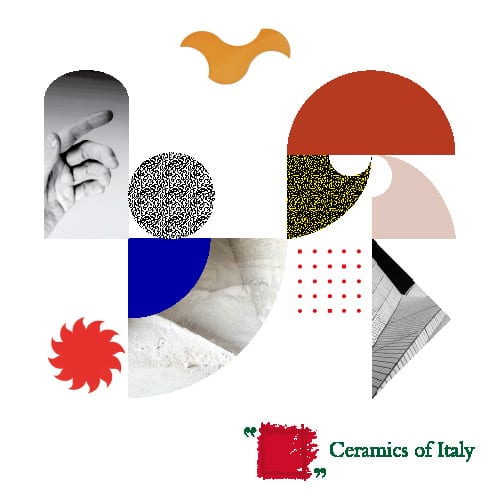History and Values



Modo italiano – Stories of heritage, brands and marketing | by Maria Teresa Rubbiani
 During these difficult times, the Italian ceramic industry has launched an initiative exploring beauty, colours and the fascinating histories of companies, ideas and collaborations with art, design and architecture. It is a world-famous, uniquely Italian story that has been unfolding for more than 70 years, a tale of creativity and quality that stemmed from Italy’s tenacity and determination to rebuild during the post-war years. And as Daniele Balicco, one of the participants in the initiative, explained, it brought a model of accessible modernity to the world of contemporary home design.
During these difficult times, the Italian ceramic industry has launched an initiative exploring beauty, colours and the fascinating histories of companies, ideas and collaborations with art, design and architecture. It is a world-famous, uniquely Italian story that has been unfolding for more than 70 years, a tale of creativity and quality that stemmed from Italy’s tenacity and determination to rebuild during the post-war years. And as Daniele Balicco, one of the participants in the initiative, explained, it brought a model of accessible modernity to the world of contemporary home design.
The Italian ceramic industry is a continent, and to navigate it one needs a tool. This tool is the Atlas of Italian Ceramics (*), a publication that chronicles the entire history of Italian ceramic manufacturers and their products up until the present day. From the post-war period onwards, these companies have sold their products all over the world, contributing to the visibility of the “Made in Italy” trademark and promoting the uniquely Italian vision of modern living. The Atlas can also be used as a marketing tool within the context of brand heritage.
The Modo italiano (“Italian way”) was explored in an online meeting featuring reports and contributions from ceramic industry entrepreneurs and leading figures from the world of Italian ceramics, contemporary architecture and home design.
The initiative was organised as part of Cersaie’s Building, Dwelling, Thinking cultural programme, which in 2020 hosted a number of online events exploring the world of design and architecture and providing an opportunity to reflect on contemporary living.
The event featured the premiere screening of a short film entitled Atlas of Italian Ceramics, Surfaces for Architecture and Urban Space from 1945 to 2018, curated by filmmaker Francesca Molteni.
The meeting included presentations by two historic companies in the Italian ceramic sector who have largely based their promotional strategies on their historical heritage and for this purpose have invested in corporate museums open to the public. Lelio Poncemi, Managing Director of Marca Corona, and Patrizia Famiglietti, Creative Director at Ceramica Francesco De Maio, explained the reasoning behind this strategy and the initiatives their companies have launched.
Next, architecture historian and Milan Polytechnic lecturer Fulvio Irace illustrated the contents of the Atlas of Ceramics, the publication he edited which was released in 2019.
This was followed by a discussion of Italian products and style by Daniele Balicco, a researcher in Theory of Literature at the Department of Philosophy, Communication and Entertainment at the University of Rome 3, and Andrea Cancellato, former Director of the Triennale di Milano and currently Project Manager of the ADI Design Museum. The online meeting ended with a talk by Maria Canella, a lecturer at the University of Milan and the editor of the Focus section in the Atlas devoted to the relationship between ceramic surfaces and the world of fashion.
The digital conference Modo Italiano was organised with the support of the Italian Trade Agency ITA and the Italian Ministry of Foreign Affairs and International Cooperation.
(*) The Atlas of Italian Ceramics was produced as part of the Mater Ceramica project with funding from the Italian Ministry of Economic Development (MISE) in accordance with Law 188 of 9 July 1990. Project partners: Confindustria Ceramica, International Museum of Ceramics in Faenza, Italian Association of Ceramic Cities, Centro Ceramico.
January 2021



